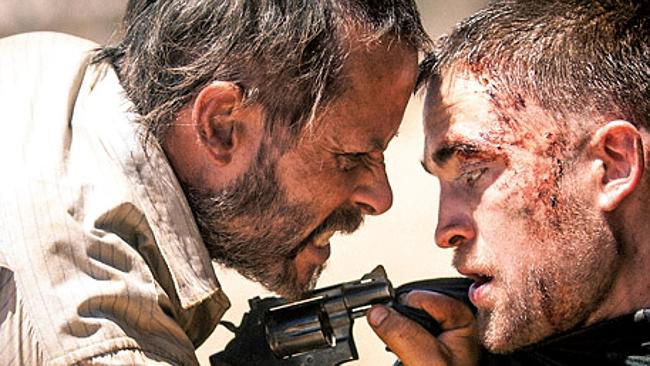Danny Collins (2015)
Rated R

Big Indie Pictures
Danny Collins isn’t as famous as Al Pacino, who plays the fictional aging rock singer in this film, but Danny’s type of fame will do well enough. He’s recognized nearly everywhere he goes, not just by long-time fans but also youths familiar with his celebrity.
 Before he was a celebrity living off his name and long-ago hit songs, he was a talented singer/songwriter. So talented, in fact, a circa ’70s interview he did for a Rolling Stone-like periodical caught the attention of John Lennon.
Before he was a celebrity living off his name and long-ago hit songs, he was a talented singer/songwriter. So talented, in fact, a circa ’70s interview he did for a Rolling Stone-like periodical caught the attention of John Lennon.
It transpires that Lennon was moved by the interview and wrote an admiring and encouraging letter that included Lennon’s phone number. The skittish Danny, who was eager for success but apprehensive of stardom, could have benefitted from such a letter. Alas, through couldn’t-believe-it-if-it-weren’t-based-on-true-events circumstances, Danny wouldn’t receive the letter for more than 40 years. By the time it’s gifted to him by his steadfast manager (the great Christopher Plummer) he’s going through the motions of fame. Trophy girlfriend, fair-weather friends, casual drugs, expensive gated home and sports cars. He slogs through his performances as best he can, singing songs he’s long since tired of, resigned that he is more celebrity than singer.
The letter blasts him free of absorbing thoughts that he’s in the final throes of his life, sending him on a new trajectory. He packs up, dumps the girlfriend and sets off on a quest to find the life he should have had, and tie up some loose ends.
Up to this point the film has moved briskly and Pacino keeps Danny engaging, no doubt. When Danny checks into a rinky-dink New Jersey hotel to get back to writing the songs that Lennon-endorsed Danny Collins was supposed to have written years back, Danny’s likeable personality really comes into focus. In quick order he charms the hotel valet (Josh Peck), the young concierge, and more intentionally the hotel manager (a wonderfully low-key Annette Bening).
The loose ends involve wriggling himself into the life of his adult estranged son. The son (Bobby Cannavale) has a wife (Jennifer Garner) and daughter and no intention of having a relationship with his long-absent father. Danny’s well-written introduction to the family (Garner shines) effectively sets the stage for the first father-son encounter.
The film’s not so much about the plot, but there are key twists I will not spoil. And it’s not even about whether Danny will succeed in writing and singing this comeback song, though Pacino makes us root for him.
Cannavale, Garner, Bening and Plummer are all wonderfully realized characters and each has at least one well-written scene that allows them to shine. This is one of those movies where you don’t mind spending time with any of the characters because they’re all interesting and say interesting things. But it’s all held together by grandmaster Pacino who knows this character inside and out. I like that Danny’s smart (he’s often taking notes) and is remarkable at reading people and assessing situations. The flashy-but-outdated clothes, hair style and cheesy songs don’t keep us from seeing what a good heart the man has, or what a warm-hearted, humorous film this is.

| Marvin Brown’s Movie Review Archive


 These things—the lingering shot, the abrasive sound—establish not simply tone, but theme. You’re going to be subjected to both for the rest of the film.
These things—the lingering shot, the abrasive sound—establish not simply tone, but theme. You’re going to be subjected to both for the rest of the film.
 A theme of connectedness and reincarnation binds the stories—lovers who face tragedy in one life, might find happiness together in another; sins and hopes of the past ripple through time and sometimes switch places, depending on the era.
A theme of connectedness and reincarnation binds the stories—lovers who face tragedy in one life, might find happiness together in another; sins and hopes of the past ripple through time and sometimes switch places, depending on the era.



